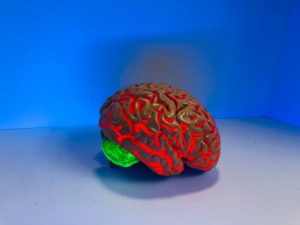TOKYO, JAPAN and CAMBRIDGE, MA – September 27, 2022 – The Eisai and Biogen pharmaceutical companies announced the results of a recent study, in a joint press release on September 27th, that there was less clinical decline in patients with early Alzheimer’s disease with the administration of a new investigational drug. They completed a phase 3 large late-stage clinical trial of the new drug lecanemab, an anti-amyloid antibody. Amyloid is a protein that accumulates in the brain of people afflicted with Alzheimer’s disease. At a press briefing the same day of the news release, Ivan Cheung, Eisai’s chairman, said “the first definitively positive large clinical trial to show that you can indeed slow down Alzheimer’s disease at this very early symptomatic stage.”
Other anti-amyloid drugs have been trialed or are in the midst of clinical studies. Biogen’s drug Aduhelm created much noise with a recent controversial study that nevertheless won accelerated FDA approval but was not covered by Medicare due to its high price, severe side-effects and a strong belief that there was little evidence that it slowed cognitive impairment in early Alzheimer’s disease.
The lecanemab study found that cognitive decline was reduced by 27% in subjects that were administered the drug compared to placebo use. 1,800 people with mild Alzheimer’s disease were enrolled. Approximately 25% of the participants were from minority groups, which was comparable to the Medicare population. The drug was administered intravenously, twice a week. Haruo Naito, Eisai’s CEO, feels that this study is important because it proves the amyloid hypothesis, whereby abnormal accumulation of amyloid in the brain is one of the main causes of Alzheimer’s disease and that treatment with antibody-binding therapy slows the progression of disease in early Alzheimer’s patients. The amount of amyloid in the brain was measured by PET scan before and after treatment. The side-effects of treatment with lecanemab included brain swelling or brain bleeding which occurred in more than 21% of the patients. This was significantly more than the 9% occurrence in patients in the placebo group. However, this lecanemab complication occurred less frequently than in patients taking Aduhelm in the the Aduhelm study.
Both pharmaceutical companies have already applied for an accelerated FDA approval to authorize the use of this medicine. A decision is expected in January. Full approval will require further trials.
Listen to the full report below:
Contact: Dr. Dick Needleman, Health reporter, 103.3 AshevilleFM, [email protected]
